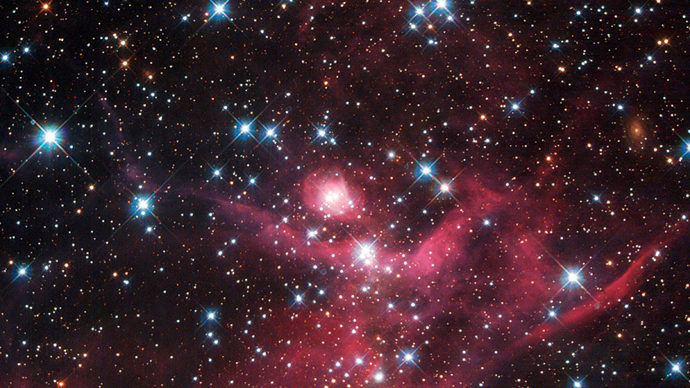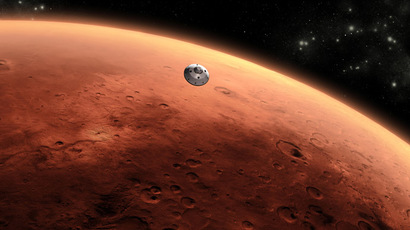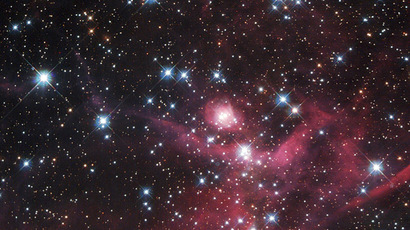Dark energy devouring dark matter to leave 'big empty Universe' – study

Dark matter, considered the scaffolding of the universe because it provides the framework for its structures to build on, is being gobbled up by dark energy, according to a new study.
Dark energy is swallowing up dark matter, leaving a vast emptiness in its wake, according to a study conducted by researchers in Portsmouth and Rome. The findings suggest that dark energy appears to be growing as it interacts with dark matter, which is thought to make up more than 85 percent of all matter in the universe.
"If the dark energy is growing and dark matter is evaporating we will end up with a big, empty, boring Universe with almost nothing in it," says Professor David Wands, a member of the research team and Director of Portsmouth’s Institute of Cosmology and Gravitation.
Since the 1998 breakthrough discovery that the universe is expanding at an accelerating rate, cosmologists have held that, though mysterious, dark energy could be a universal constant. However, this simple model does not explain why the growth of cosmic structures, including galaxies and galaxy clusters, is slower than expected.
The study, published in the journal Physical Review Letters, issued by the American Physical Society, sought to understand the slowing of cosmic growth. The researchers suggest that an energy transfer between dark energy and dark matter may account for the slower rate of expansion.
“Dark matter provides a framework for structures to grow in the Universe. The galaxies we see are built on that scaffolding and what we are seeing here, in these findings, suggests that dark matter is evaporating, slowing that growth of structure,” explained Wands.
“This study is about the fundamental properties of space-time. On a cosmic scale, this is about our Universe and its fate,” he added.
Professor Dragan Huterer, a theoretical cosmologist at the University of Michigan, also underscored the importance of new findings on dark energy.
“Any time there is a new development in the dark energy sector we need to take notice since so little is understood about it,” he said.














